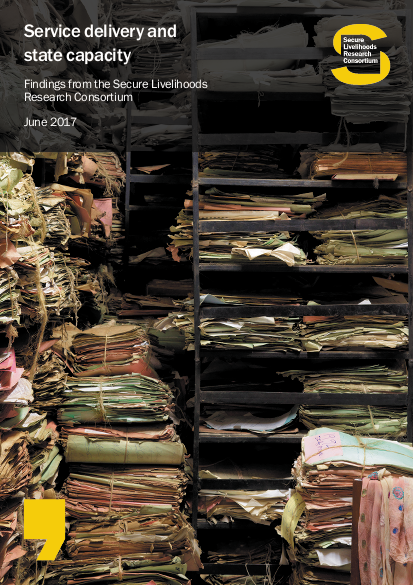
Every year a quarter of all international aid – approximately US$15 billion – is spent on capacity development. However, despite the continued dominance of capacity development, results are frequently disappointing.
Over a period of six years, the Secure Livelihoods Research Consortium (SLRC) has conducted a series of studies on state capacity in eight countries, focusing on the ways in which international actors attempt to build the capacity of states in fragile and conflict-affected situations to deliver services – typically considered a ‘core function’ of any modern state. This report synthesises the findings of these studies, drawing out cross-cutting themes that help us understand both the ways in which capacity development in such contexts is currently undertaken, and the assumptions, challenges and trade-offs that underpin this practice.
This report is one of a series produced at the end of SLRC’s first phase. These reports bring together and analyse all relevant material on SLRC’s overarching research questions, with a view to drawing out broader lessons that will be of use to policy makers, practitioners and researchers.